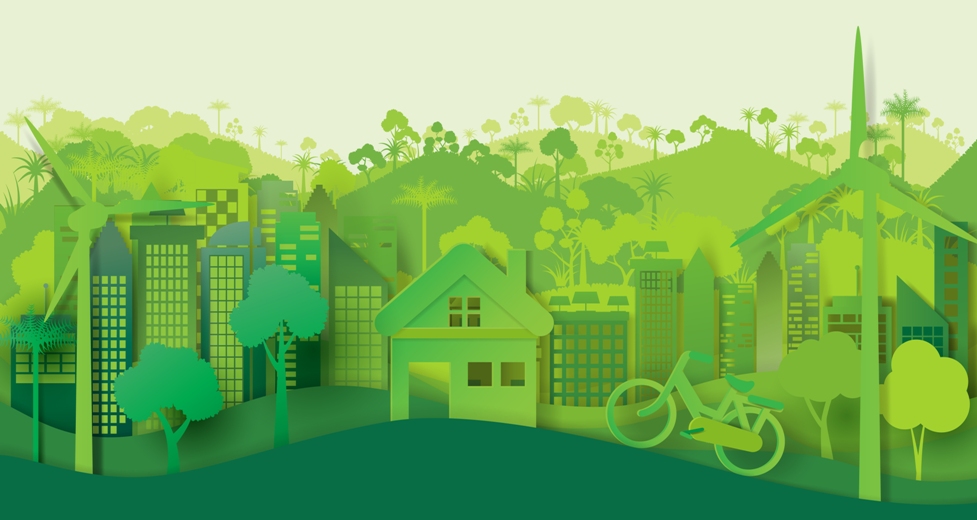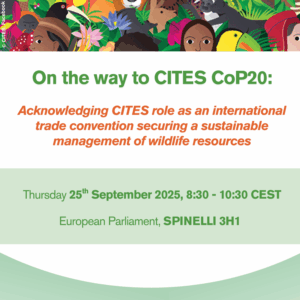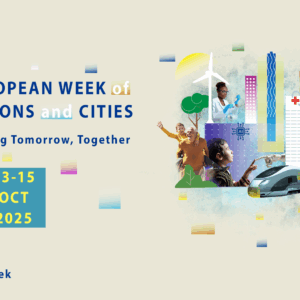
Building an effective Bioeconomy Strategy
28 September 2017, 08:00 – 09:30
Hosted by Miapetra Kumpula-Natri MEP
Chair of the “Bioeconomy” Working Group of the EP Intergroup on “Climate Change, Biodiversity, and Sustainable Development”
Policy-makers and stakeholders gathered in the European Parliament to assess the achievements of the European Bioeconomy Strategy and highlight the next steps moving forward.
Miapetra Kumpula-Natri MEP welcomed participants by highlighting the importance of innovation and emphasising that there are many new innovations underway by young scholars. It was said that it is rumoured that a staff working document is circulating the Commission on the existing Bioeconomy Strategy and that the question remains whether it should be updated or not. It was said that in view of the current policy frameworks such as the Paris Agreement and Circular Economy Package the Strategy should be updated in order for Europe to play a significant role in implementing these objectives. Further, it was highlighted that energy, industry and agriculture need coherence and more symbiosis.
Jyrki Suominen, Deputy Head of Strategy Unit, Bioeconomy Directorate, DG RTD, European Commission underlined that the review process is not yet finished but provided an insight to the initial process of the Strategy and the next steps. It was outlined that the Strategy was jointly developed among five Commissioners and was set out to pave the way to a more innovative resource efficient and competitive society that reconciles food security with sustainable use of renewable resources while ensuring environmental protection. The Strategy had five main objectives: ensure food security, manage natural resources sustainably, reduce dependence on non-renewable resources, mitigate and adapt to climate change, create jobs and maintain EU competitiveness. An Action Plan was also developed around the three main areas: invest in research, innovation, and skills, reinforce policy interaction and stakeholder engagement, and enhance markets and competitiveness. One main achievement has been the establishment of the Bio-based Industries Joint Undertaking. Another important result is the attention gained from national and regional policy-makers with almost all a large number of Member States, except for most Eastern European countries, having a dedicated national bioeconomy strategy or bioeconomy related policies. It was noted that the national strategies also go beyond research and innovation and have been created jointly covering various policy areas. Many regions have also incorporated bioeconomy aspects in their strategies. It was stressed that knowledge and understanding of the bioeconomy is central for its further development, which is why the Strategy supported setting up the Bioeconomy Knowledge Centre supported by the Joint Research Centre. The progress thus far was highlighted mentioning that actions to support markets and competitiveness is somewhat mixed. Further, progress on the regulative framework and development of new markets has been slow in some areas. The Strategy has also been examined to see if it is still fit for purpose. The review has shown that major objectives and goals of 2012 are as relevant today as they were back then. Strong investments in research and innovation are providing the technologies needed but more synergies and governance with other instruments are needed to fully exploit the potential. It is essential to make agriculture, forests and aquatic systems more circular and exploit their regional biomass potentials. More needs to be done in supporting private investments and dedicated financial instruments. The next steps will be to present the findings of the review at the Bioeconomy Policy Day on November 16. The Commission will by then know what actions will be taken on the Strategy. It was pointed out that the Industrial Policy Strategy Communication, which was recently published states that a stronger bioeconomy can help the EU progress towards a circular and low carbon economy. The Bioeconomy Strategy was also included in the Annex of the actions for 2018, but for the definite decisions of what this means will only be announced in a few weeks.
Pierre Bascou, Director for Sustainability and income support, DG AGRI, European Commission showcased that bioeconomy plays an important role for the development of the agriculture and forestry sectors offering significant opportunities to increase and diversify income sources and create jobs in rural areas. These two sectors have a role to play in exploiting the full potential of biomass ensuring the sustainable availability of organic materials for food and feed as well as biobased products. It was said that the Common Agricultural Policy (CAP) supports the bioeconomy in three ways. Firstly, it supports the competitiveness of the farm sector by granting decoupled income support to farmers and agricultural producers. This ensures the sustainable production of agricultural products providing feedstocks for the bio-based industry. Secondly, under the rural development programmes it promotes innovation in the bioeconomy as well as supply and use of renewable sources of energy, waste, residues, and other non food raw material for the purpose of bioeconomy. It was pointed out that different policy instruments can be used in this aspect also depending on the need of the territory. In this regard there are various opportunities for investments supporting the bioeconomy. Another specific instrument, which is used to support operational groups is the European Innovation Partnerships, which brings together different stakeholders to test the possibility to adapt to new technologies in real conditions This measure is part of Horizon 2020 and contributes to aspects focused on bioeconomy in relation to farming and forestry and supporting rural areas. It was informed that the next call for proposals should focus on a more circular bioeconomy, small-scale bioeconomy refineries, and facilitate the recovery and reuse of nutrients from waste streams.
It was said that further efforts are needed in order to support the development of the bioeconomy: to continue to ensure sustainable production in agricultural and forestry sectors (i.e. to optimise the production and use of exploit biomass), to put more efforts to decarbonise the economy and finally to address the broad policy challenges (environment, energy, climate, circular economy etc.) where farming and forestry have a clear role to play. Three key challenges were outlined in reaching the abovementioned objectives. Firstly, the need to ensure coherence of these policy framework and initiatives was raised to achieve the paradigm shift towards using our natural resources in the most efficient and sustainable way. For this we need to take better account of the potential of new technologies, robotics, artificial intelligence. Secondly, it was stressed to better involve farmers and forest owners as well as rural areas, which was also one of the results from the recent consultation of the CAP. Thirdly, with regards to future hurdles more knowledge and coherence can help create synergies.
Philippe Mengal, Executive Director of the Bio-based Industries Joint Undertaking (BBI JU) emphasised in his presentation that a fossil based economy is just a brief moment in our global history, stressing that the bioeconomy is the future. Bio-based industries are an emerging sector of the current economy representing already 3.3 million jobs with a € 674 billion turnover. It was noted however, that challenges and risks still arise, within the value chains at each stage, from the initial biomass, to the biorefineries, to the final product. These challenges arise due to a number of factors including the fragmentation of the chain, high investment costs and regulation constraints. The public-private partnership was created between the European Commission and the Bio-based Industry Consortium (BIC) with the intention of mitigating these risks, de-risking investment for private research and innovation and structuring the sector in order to allow it to reach critical mass in a focused and coherent way. The objective of BBI JU is to develop sustainable and competitive bio-based industries in Europe, based on advanced biorefineries that source their biomass locally and sustainably. This is to be achieved by demonstrating new technologies, developing new business models, and setting up flagship biorefinery plants. By 2030, the expected impact of these initiatives involves reducing dependency on oil by replacing at least 30% of existing petroleum-based products, reducing by 50% greenhouse gas emissions, diversify and grow farmer’s revenues, develop the potential of agri-food waste and forestry residues, create new jobs and promote an overall shift to a bio-based economy. It was informed that the BBI JU supports various projects underway in Europe also mentioning that they tend to focus on various criteria. For example each project must take into account an LCAnalysis and other areas of focus include waste valorisation, reconversion of marginal lands, protein recovery, and new feedstock supply chains, to name a few. Today BBI JU is halfway through the initiative with already four Calls for proposals in the past 3 years and a portfolio of 65 projects. BBI JU has seen an increase in mobilisation both in numbers of projects as well as coverage of countries, being well spread from the north to south and from east to west. An important achievement pointed out is the high participation of SMEs who play a critical role in technology development. In terms of outcome it was said that the BBI JU are already over-performing in reaching the objectives providing a positive outlook for the future. Lessons learned include the need to increase mobilisation in BBI calls, optimal value chains coverage, increasing interest from regions, growing BBI JU awareness, new types of collaboration, and Europe is back on the map as an attractive area for investments. It was concluded by mentioning some priorities for the future such as including farmer organisations participation. It was also said that municipal bio-waste offers huge potential and the BBI JU will widen the participation strategy, put more emphasis on aquatic biomass, increase brand owner participation, better communication between EU citizens, and engage more with young scientists. Further, the BBI JU will hold its first Stakeholder Forum on 7th December in Brussels to discuss these messages and steps for the future.
Joanna Dupont-Inglis and Johan Elvnert, European Bioeconomy Alliance (EBA) presented the stakeholders’s view. Mr Elvnert introduced the EBA; a group of 12 organisations representing a wide range of stakeholders in the bioeconomy. The primary goals of this organisation revolve around raising awareness of the bioeconomy and making the bioeconomy mainstream by engaging stakeholders to realise the full potential of the European bioeconomy. In this regard he listed five policy asks, the first being to integrate bioeconomy into key EU policies to increase the availability of biomass. Additionally he relayed the need to increase the financing for the bioeconomy, secure the Bio-Based industries Joint Undertaking by 2020, incentivise the use of bio-based products in strategic sectors, and increase the demand for biobased products by promoting their value.
Ms. Dupont- Inglis, Chair of the Bioeconomy Stakeholders Panel explained in her presentation that this panel is an important part of the Bioeconomy Strategy. The Bioeconomy Panel incorporates 29 members from diverse organisations including NGO’s, trade unions, regions and regional organisations, universities, and industry representatives with the goals of building on the Bioeconomy Stakeholder Manifesto and identify concrete actions to enhance the bioeconomy with active participation by panel members. The Panel has based its work on the building blocks from the 4th Bioeconomy Stakeholders Conference, which was held in April 2016 in Utrecht. The Panel has taken part in stakeholder meetings, consultations, interviews with active stakeholders, and group discussions in order to collect and draft the final input. The Panel aims to finalise the Manifesto by the Bioeconomy Week organised by the Commission 16-17 November 2017. The Panel is also working on Action Plans on education and training, circular economy, regions, and awareness and communication. It was further outlined that the guiding principles of the Manifesto, emphasising its efforts to address societal and environmental challenges and to facilitate innovation and business opportunities. She then relayed actions being undertaken in conjunction with the Manifesto relating to promoting education and training, embracing the circular economy, strengthening the regional bioeconomy, and raising public awareness, to name a few. She concluded by identifying a number of Manifesto recommendations to EU policy makers and Member States, which include supporting market creation, innovation and a common agricultural policy, establishing a level playing field, investing in the future of the bioeconomy, and strengthening the coordination within the Commission’s services.
The discussion with the audience reiterated the potential of the bioeconomy also emphasising that this potential adheres to all of Europe. It was pointed out that Europe is a diversified landscape with national strategies varying depending on each country and even region. Spain was highlighted as an example as it is not homogenous in its potential. It was said that each country and region must find the potential within their area and resources as there are many types of bioeconomy to pursue. A way for regions to get more involved in the bioeconomy is to use smart specialisation strategies or structural funds to push forward its development.
Lambert van Nistelrooij MEP closed the meeting by emphasising the importance of bringing recognition to European projects in the bioeconomy area. The project ‘Let the stars shine’ was presented and advocated for engagement of EU citizens and more communication and awareness with regards to European development of the bioeconomy. Examples of successful projects from bio-based industries were presented including ‘Lina’, the first biocomposite car, biobased art, and a project engaging youth populations in developing bioplastics from potatoes. The innovation potential of the bioeconomy was reiterated and the meeting was concluded by emphasising the need to communicate accomplishments to the European community.

